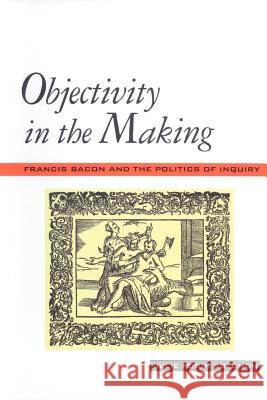Objectivity in the Making: Francis Bacon and the Politics of Inquiry » książka
Objectivity in the Making: Francis Bacon and the Politics of Inquiry
ISBN-13: 9780801872495 / Angielski / Miękka / 2002 / 344 str.
How we arrived at a capacity for taking cold, hard looks at the facts of nature--and whether we ever truly have done so--are questions that continue to engage both historians of science and students of culture. Historians of modern European intellectual history commonly credit Francis Bacon with laying the groundwork for a mode of study that begins without presuppositions, religious or otherwise, the kind of searching we know as research and long have credited as being -disinterested.-In Objectivity in the Making, Julie Robin Solomon shows how -disinterestedness- became a dominant principle of intellectual modernity by examining Bacon's notion of scientific self-distancing against the background of early modern political ideology, socioeconomic behavior, and traditions of learning. Solomon places him between two cultures--Jacobean monarchical mercantilism and the self-distancing strategies of early-seventeenth-century traders and travelers. She shows that Bacon--by virtue of his prominent political position within the Jacobean court, familiarity with prevailing commercial practices, and humanistic learning--made his signal contributions to natural philosophy because of where he stood at a critical juncture.











